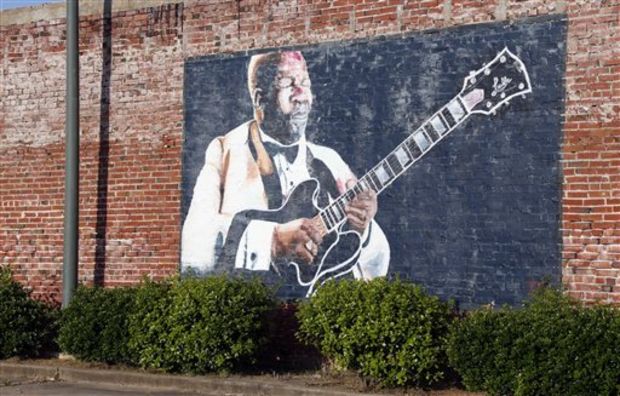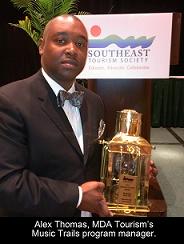
Special to The Mississippi Link
JACKSON – On Tuesday, July 17, Holmes County was the latest recipient of a marker on the Mississippi Blues Trail. The marker was unveiled at 115 Yazoo Street in Lexington.
Officials with the Mississippi Development Authority (MDA) said Holmes County has been a significant contributor to the legacy of African American blues and gospel music in Mississippi.
Heralded blues artists born or raised in the Lexington area include Elmore James (a native of Richland, about 11 miles south of town), Lee “Shot” Williams, Otis “Big Smokey” Smothers and Lonnie Pitchford.
Lexington and the surrounding rural areas claim a rich musical heritage as the onetime home of Blues Hall of Famers B. B. King and Elmore James along with an array of accomplished blues, soul, jazz and gospel performers.
Riley B. King, born in 1925, was a budding guitarist and gospel singer when he moved to Lexington to live with his father Albert for two years in 1940. He later earned the nickname “Blues Boy,” or “B. B.”, in Memphis on his way to becoming the world's most famous blues singer.
James (1918-1963), a key figure in Mississippi and Chicago blues history, lived on farms around Lexington, Durant, Goodman and Pickens in his early years. His headstone in Ebenezer bears the inscription “King of the Slide Guitar.”
Several local families were responsible for much of Lexington's blues legacy. Soul and blues singer Lee “Shot” Williams (1938-2011), whose recording career lasted almost fifty years, was a cousin of brothers Otis “Big Smokey” (1929-1993) and Albert (aka Abe) “Little Smokey” Smothers (1939-2010) and of Lester Davenport (1932-2009), all of whom were longtime figures on the Chicago blues scene. Williams and Otis Smothers were from Lexington; Albert Smothers, Davenport, and Chicago vocalist Arelean Brown (1924-1981), who claimed Williams as a brother, were born in or near Tchula.
Williams, who teamed with Albert Smothers at times in the Chicago clubs, enjoyed some renewed popularity on the Southern soul circuit in his later years with a series of risque CDs. Otis Smothers performed in a more down home vein and recorded some historic blues of his own in addition to doing sessions with Howlin' Wolf and writing songs for Muddy Waters.
Guitarists Willie Douglas “W. D.” Pitchford and his wife Rosie spawned a prolific musical family just outside Lexington. Their sons Willie Douglas, Jr., Charles Edward, Lonnie Lee, Andrew James (“A. J.”) and Rosby Pitchford all played blues and gospel guitar. Lonnie (1995-1998), a critically acclaimed performer who toured several countries, carried on the traditions of Elmore James and Robert Johnson and also brought the homemade one-string “diddley bow” to prominence.
Lexington's Roseby brothers Ras (“Butch”) (1904-1970) and Edgar (a banjoist, 1921-1993) and their cousin, saxophonist John “Brick” Roseby (1910-1987), performed in various jazz and dance bands prior to World War II. Ras (Rasberry), a trombonist, later played drums for Elmore James and recorded as a sideman for Sonny Boy Williamson No. 2 and Jerry McCain on Trumpet Records in Jackson. The most prolific blues studio musician from Lexington was guitarist Lee Cooper (1925-1966), who recorded with Howlin' Wolf, Memphis Slim, Eddie Boyd, and many others in Chicago. Another Chicago bluesman with Lexington roots, James Scott, Jr. (c. 1913-1983), recorded in Memphis for Sun Records in 1952 and led the Scott Jr. Band in Mississippi and Chicago.
Geneva Morganfield (1915-1973), the wife of McKinley Morganfield – better known as Muddy Waters – immortalized in Waters' 1949 recording “Little Geneva,” was a native of Lexington, as was noted jazz bassist Malachi Favors (1927-2004), a member of the Art Ensemble of Chicago.




